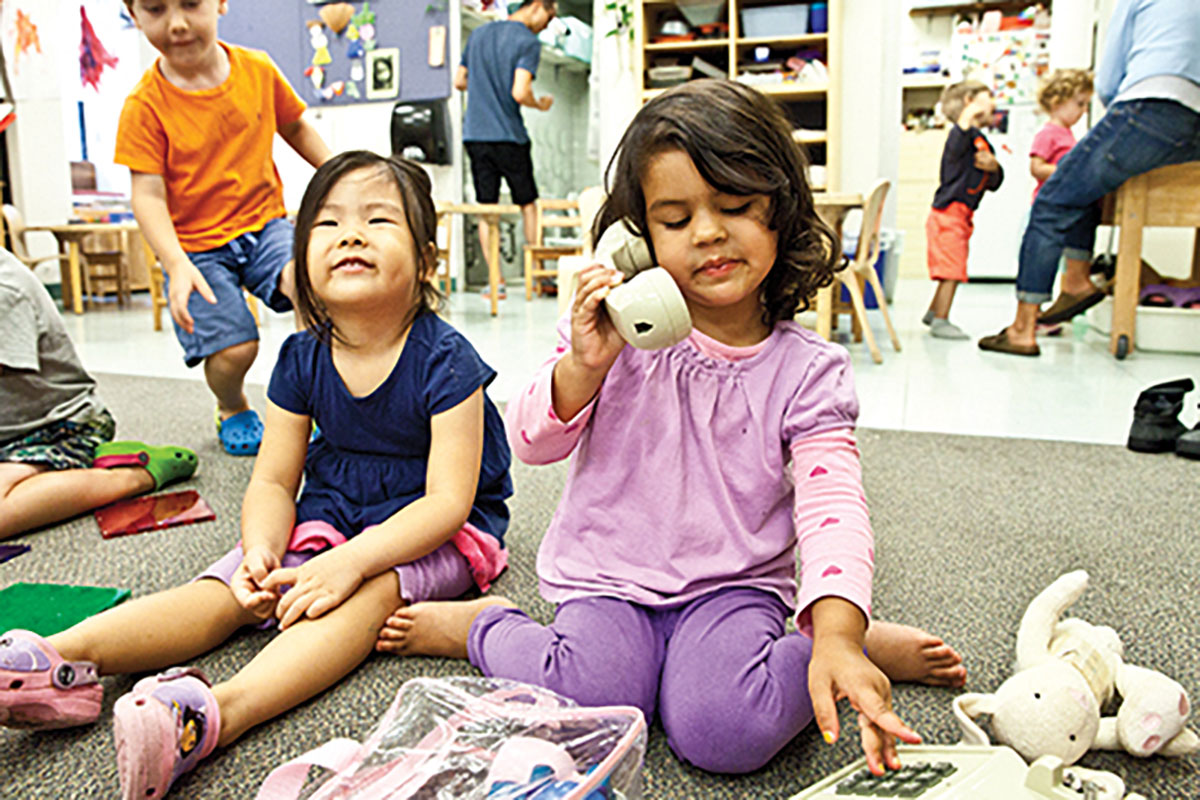With parents keeping their very young children out of group settings, the COVID pandemic is diminishing social and learning opportunities for babies and toddlers, too, reports a recent New York Times story. As a result, “there is going to be a bit of a collective lag in academic skills and in those executive-function skills that allow a child to navigate a classroom more easily,” predicts developmental psychologist Aliza W. Pressman, (Ph.D.'11, M.A. ’05), Co-Founding Director and Director of Clinical Programming at New York City’s Mount Sinai Parenting Center.

SEEING THE POTENTIAL TC alumna Aliza Pressman, Founding Director and Director of Clinical Programming at the Mount Sinai Parenting Center, says that “in some ways, babies are living their best lives.” (Photo: TC Archives)
But the good news, says Pressman, Assistant Clinical Professor at Mount Sinai’s Icahn School of Medicine, is that “you can turn almost any home-based activity or interaction into an opportunity,” including bath time, feeding, diaper changes and getting dressed. “It is in those caregiving moments that some of the biggest brain boosting interactions occur,” says Pressman, who works with the nonprofit Vroom and with Healthynest, a baby products company, to help parents make the most of home learning.
There is going to be a bit of a collective lag in academic skills and in those executive-function skills that allow a child to navigate a classroom more easily.
Pressman, who earned her TC doctorate in Developmental Psychology in the Department of Human Development, says that young children’s language skills may even improve as a result of time spent at home with parents or other primary caregivers. “In some ways,” she says, “babies are living their best lives.”
At TC, Pressman served as a Graduate Research Fellow at the National Center for Children & Families, working with NCC Co-Director Jeanne Brooks Gunn, Virginia and Leonard Marx Professor of Child Development and Education. Pressman is also the co-founder of the SeedlingsGroup, a New York City and Los Angeles parent education group that uses evidence-based research and information to educate and guide families about their developing children, and produces podcast, “Raising Good Humans,” a weekly podcast for parents.
